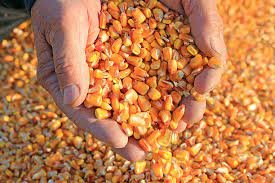Artisanal Cheese Maker – Entrepreneur

Introduction:
In a world increasingly dominated by mass production and standardized flavors, artisanal cheese makers stand out as guardians of tradition, craft, and quality. These entrepreneurial artisans are not merely producers; they are storytellers, preserving centuries-old techniques while innovating to meet the demands of modern palates. From quaint farmsteads nestled in rural landscapes to urban creameries redefining the local food scene, artisanal cheese makers embody a dedication to excellence that transcends mere sustenance, transforming cheese into an art form.
The Art of Artisanal Cheese Making:
Artisanal cheese making is more than just a process; it’s a labor of love that begins with the careful selection of ingredients. Unlike mass-produced cheeses, which often rely on additives and shortcuts for consistency, artisanal cheese makers prioritize quality over quantity, sourcing milk from local farms with a focus on sustainable and ethical practices.
The magic unfolds in the cheese-making process itself, where traditional methods and expert craftsmanship intertwine. From curdling and molding to aging and ripening, every step is executed with precision and care, allowing for the development of complex flavors and textures that tantalize the senses.
One of the hallmarks of artisanal cheese making is its diversity. Each cheese maker brings their unique perspective and expertise to the craft, resulting in an array of styles and varieties that cater to a spectrum of tastes. From creamy Bries to tangy blues, and from crumbly cheddars to pungent washed-rinds, the world of artisanal cheese is a tapestry of flavors waiting to be explored.
The Entrepreneurial Spirit:
At the heart of the artisanal cheese movement lies the entrepreneurial spirit—a commitment to innovation, sustainability, and community. While passion and craftsmanship are essential, successful artisanal cheese makers also possess business acumen and a willingness to adapt to changing market trends.
For many entrepreneurs, the journey begins with a deep-rooted connection to the land. Whether they inherit a family farm or embark on a new venture, artisanal cheese makers often start small, honing their skills and building a loyal customer base through farmers’ markets, local shops, and word-of-mouth recommendations.
As demand grows, so too does the need for expansion and investment. Some cheese makers choose to scale up production while maintaining their commitment to quality and tradition. Others opt for a more intimate approach, focusing on limited batches and personalized experiences for discerning customers.
In recent years, the rise of agritourism has provided new opportunities for artisanal cheese makers to connect with consumers on a deeper level. From on-site tastings and farm tours to immersive workshops and cheese pairing events, these experiences not only generate additional revenue but also foster a sense of community and appreciation for the craft.
Challenges and Opportunities:
Despite the allure of artisanal cheese making, the industry is not without its challenges. From regulatory hurdles and fluctuating milk prices to competition from larger producers, artisanal cheese makers must navigate a complex landscape to thrive.
One of the most pressing issues facing the industry is the question of sustainability. As consumers become increasingly conscious of the environmental impact of their food choices, there is a growing demand for cheeses made from ethically sourced milk and produced using eco-friendly practices. Artisanal cheese makers are rising to the challenge, exploring alternative energy sources, implementing waste reduction strategies, and forging partnerships with local farmers to support regenerative agriculture.
Another area of concern is the need for greater diversity and inclusion within the industry. Historically, cheese making has been dominated by white, male producers, but there is a growing recognition of the contributions made by women, people of color, and members of the LGBTQ+ community. Initiatives aimed at promoting diversity and providing opportunities for underrepresented groups are helping to create a more inclusive and equitable cheese-making community.
Despite these challenges, the future looks bright for artisanal cheese makers. As consumers increasingly prioritize quality, authenticity, and sustainability, the demand for handcrafted cheeses is expected to continue growing. With their passion, creativity, and entrepreneurial spirit, artisanal cheese makers are well-positioned to lead the way, inspiring a renaissance of flavor and craftsmanship in the world of cheese.

Conclusion:
Artisanal cheese makers are more than just entrepreneurs; they are custodians of tradition, ambassadors of flavor, and champions of sustainability. Through their dedication to craft and commitment to excellence, these visionary artisans are reshaping the culinary landscape one wheel of cheese at a time. As we savor the fruits of their labor, let us celebrate the artistry, innovation, and passion that make artisanal cheese making a true labor of love.



